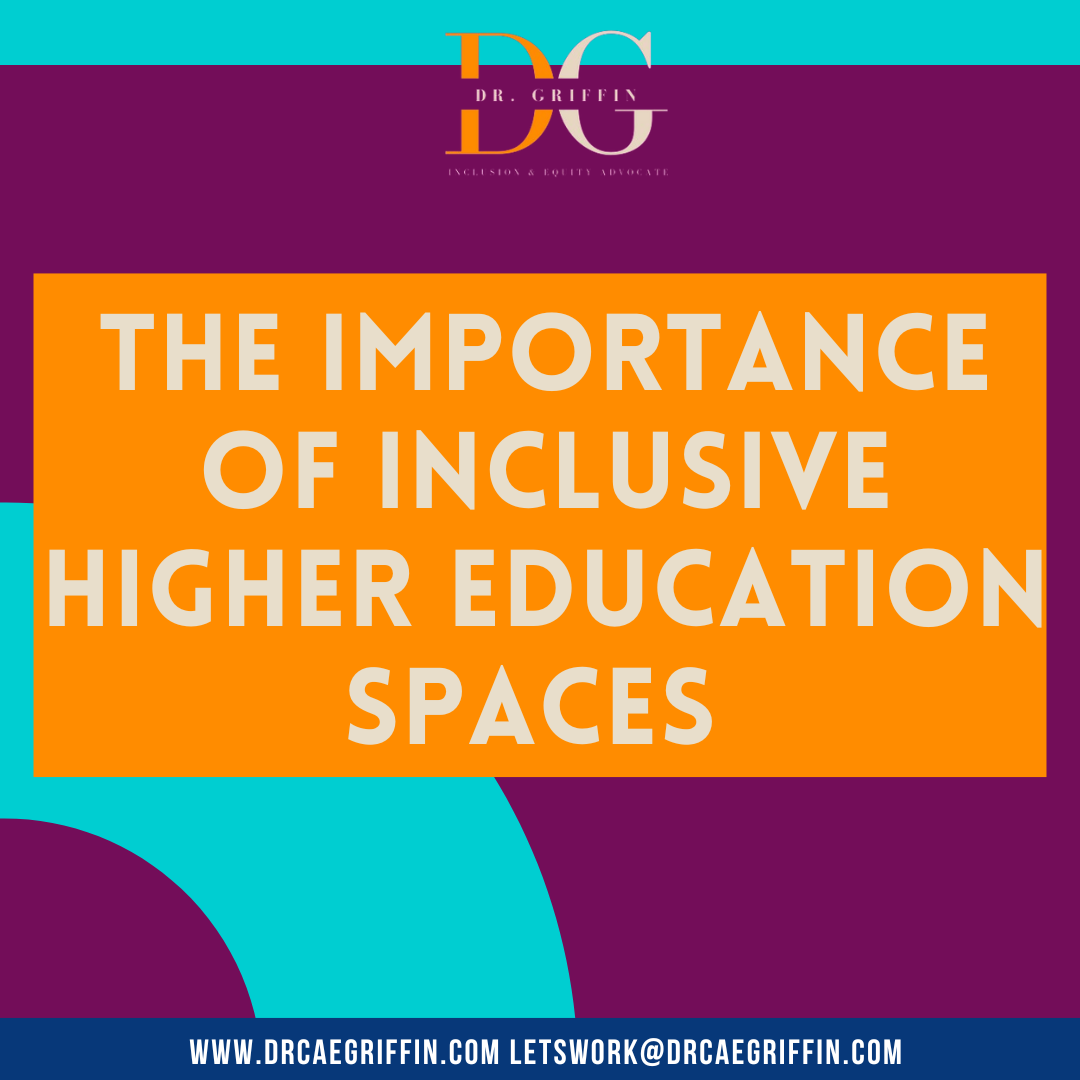Why We Should Work to Create Inclusive Higher Education Spaces
Inclusive leadership and inclusivity are crucial in fostering equity and diversity within higher education for several compelling reasons:
1. Representation and Diversity of Perspectives: Higher education institutions serve diverse student populations from various backgrounds, cultures, and identities. Inclusive leadership ensures that these diverse perspectives are represented in decision-making processes, curriculum development, and campus policies. This representation fosters a more inclusive learning environment where all students feel valued and respected.
2. Enhancing Learning and Academic Excellence: Inclusive environments promote intellectual engagement and critical thinking by exposing students to a wide range of perspectives and ideas. When students encounter diverse viewpoints in their coursework and interactions, they develop a deeper understanding of complex issues and are better prepared to address real-world challenges .Isn’t this the true meaning of education?
3. Supporting Student Success and Retention: Students from marginalized or underrepresented groups often face unique challenges that can impact their academic success. Inclusive leadership and programming involves implementing support services, mentoring programs, and inclusive teaching practices that address these challenges and promote student retention and success. When students feel included and supported, they are more likely to thrive academically and persist to graduation. This is what we want for our students, correct?
4. Cultivating a Culture of Respect and Belonging: Inclusive leadership fosters a campus culture where all members—students, faculty, and staff—feel respected, valued, seen and heard. This sense of belonging contributes to a positive campus climate where individuals can fully participate in academic, social, and extracurricular activities without fear of discrimination or exclusion.
5. Preparing Students for Global Citizenship: In today's interconnected world, graduates need cultural competence and the ability to collaborate across diverse perspectives. Inclusive higher education environments prepare students to become global citizens who are capable of navigating and contributing to diverse workplaces and communities.
6. Promoting Equity in Opportunities and Outcomes: Inclusive leadership actively addresses inequities in access, opportunities, and outcomes within higher education. By identifying and dismantling barriers to success, such as systemic biases and discriminatory practices, institutions can create equitable pathways for all students to achieve their full potential.
7. Advancing Research and Innovation: Diversity in academic and research teams enhances creativity and innovation by bringing together individuals with different backgrounds, experiences, and expertise. Inclusive leadership encourages collaboration across disciplines and supports diverse perspectives in research endeavors, leading to groundbreaking discoveries and solutions to complex societal challenges.
8. Upholding Ethical and Social Responsibility: Higher education institutions play a pivotal role in promoting ethical leadership and social responsibility. Inclusive leadership aligns with these principles by advocating for fairness, justice, and equality both on campus and in broader society. Institutions that prioritize inclusivity contribute positively to social justice movements and inspire students to become advocates for equity and inclusion in their future careers.
In conclusion, inclusive leadership and inclusivity are essential in fostering equity and diversity within higher education because they promote student success, enhance learning experiences, cultivate a culture of respect and belonging, and prepare students for a diverse and interconnected world. By embracing inclusive practices, higher education institutions not only fulfill an educational mission but also contribute to a more just and equitable world.

